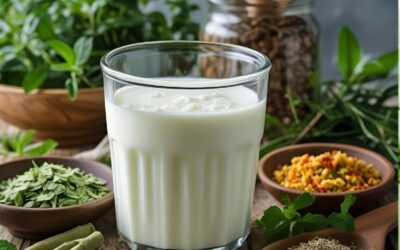AI Ayurveda Imma – Your Guide to Ayurvedic Living in the UK | Zen Wellness
Ayurveda, the ancient Indian system of medicine, emphasizes the importance of “Desha,” or geographical location, in influencing health. Desha considers how environmental factors impact our well-being. This article analyses the Ayurvedic concept of Desha, particularly Anupa Desha, and draws comparisons with UK geography, providing practical dietary and lifestyle advice to mitigate Vata imbalance, a common concern in the UK.
Understanding Anupa Ayurveda Desha
Ayurveda describes three main types of Desha:
- Jangala Desha: Dry land, characterized by fewer trees and water.
- Anupa Desha: Marshy land, with abundant trees, mountains, and water bodies like rivers and the sea.
- Sadharana Desha: Normal land, possessing a balance of features.
People inhabiting Anupa Desha are described as having tender bodies and are more prone to Kapha and Vata disorders.
UK Geography and Anupa Desha
🌍 While the UK is not directly referred to as Anupa Desha in Ayurveda, its climate shows close similarities. ❄️💨
🌧️ The UK experiences long winters, extreme cold, persistent winds, heavy rainfall, and damp conditions, making it prone to Kapha and Vata vitiation.
🌊 Coastal proximity, abundant rivers, and historically marshy lands further strengthen this correlation, as moist environments tend to aggravate Kapha, while cold and windy conditions disturb Vata.
Personal Experience: Vata Imbalance high in UK
🌬️ Cold & Windy Climate – The UK’s cold, dry air increases Vata, leading to imbalance. ❄️💨 🍽️ Dietary Habits – Too many raw, dry, processed foods can worsen Vata, lacking warmth and nourishment. 🥗⚡ ⏳ Lifestyle Stressors – Work pressure, financial concerns, irregular routines, and excessive screen time overstimulate Vata. 📱😵💫
Many individuals in the UK, including myself, experience symptoms related to Vata aggravation.
Vata-Related Health Concerns
🦴 Musculoskeletal Issues – Joint pain, stiffness, arthritis, and osteoporosis may develop. 🏃♂️💢 🧠 Nervous System Disorders – Anxiety, insomnia, headaches, nerve pain, and tremors can arise. 🛌🌡️ 💨 Digestive Problems – Bloating, constipation, and dry colon issues are common signs of imbalance. 🍽️❌ 🩸 Circulatory Issues – Poor circulation, cold hands and feet, and fatigue may manifest. ❄️🩸 🌀 Mental & Emotional Effects – Forgetfulness, feeling scattered, fear, and insecurity can be linked to Vata aggravation. 🤯💭
🔹 Dry skin and premature aging 🧴⌛ 🔹 Tinnitus (ringing in ears) 🔊🎵 🔹 Weight loss when severely aggravated ⚖️💨 🔹 Dry cough and respiratory issues 🌬️🤧
These issues are often exacerbated by the UK’s limited sunlight, especially during the colder months, leading to widespread Vitamin D deficiency disorders.
Ayurveda Desha Approaches to Vata Balance
Ayurveda doesn’t directly mention Vitamin D, but it explains the conditions associated with its deficiency through Vataimbalance and low Ojas (vitality). Here’s a combined approach:
- 1. Supplements (UK Market):
- The NHS and Ayurveda recommend Vitamin D supplementation, especially from October to April.
- Popular options in the UK include Vitabiotics Ultra D3 (1000 IU), BetterYou Vitamin D3 Spray, Holland & Barrett Vitamin D3, and Solgar Vitamin D3 1000-2000 IU.
- While the NHS recommends 10 mcg/day (400 IU), many safely take up to 1000 IU/day unless otherwise advised.
- 2. Vitamin D-Rich Foods:
- While sunlight is limited, certain foods can help:
- Fortified cereals: Enjoy warm with milk and seeds.
- Fortified plant milks (Alpro, Oatly, Rude Health): Combine with warming spices.
- Eggs (yolk): Cook with ghee or olive oil.
- Fatty fish (salmon, sardines, mackerel): Excellent for joint health.
- Mushrooms (UV-exposed): Cook with turmeric and ginger.
- While sunlight is limited, certain foods can help:
- 3. Protein-Rich Foods (Balancing Vata):
- Include protein sources like pulses (moong dal, toor dal, masoor dal, chickpeas), tofu/tempeh, paneer, Greek yogurt (plain, room temperature), fish, eggs, nuts (almonds), and seeds (pumpkin, flax, sunflower). These are readily available in UK stores like Goldenacre Minimart, Scottish Grocers. Tesco, Asda.
- 4. Lifestyle Tips for Vata Balance:
- Sunlight: Get outdoor sunlight between 10 am and 2 pm when available. ☀️
- Oil Massage (Abhyanga): Perform daily oil massage before bathing to nourish joints and skin. 💆♀️
- Warmth: Wear layered clothes and use heating pads for joints. 🔥
- Hydration: Stay hydrated with warm water and herbs like ginger or fennel. 🫖
- Oil Application: Apply oil (sesame or coconut) before bathing, especially for numbness and stiffness. Karpooradi Thailam can also be used.
- Epsom Salt Baths: At Night Apply oil in Hands and Legsif you are prone to numbness, Soak in warm water with Epsom salt before bed. 🛀
- Exercise and Yoga: It is very essential to practise exercise and yoga for mobility, as joints and bones tend to get stiff in this climate. Aim for at least daily walking, gym workouts, or activities like Zumba to stay physically active and maintain joint flexibility.
Dietary Recommendations for Vata and Kapha Balance in the UK
To balance Vata and Kapha, focus on incorporating these foods, commonly found in UK markets:
- Foods to Reduce Vata:
- Vegetables: Carrots 🥕, sweet potatoes 🍠, beetroot, asparagus, courgette, okra, green beans.
- Fruits: Ripe berries, peaches 🍑, plums
- Other: Unsalted butter, ghee-sautéed foods.
- Foods to Reduce Kapha:
- Vegetables: Leafy greens (kale) 🥬, broccoli 🥦, cabbage, cauliflower, peppers 🫑.
- Fruits: Apples 🍎, Pears
- Spices: Ginger, garlic, and turmeric are beneficial for both Vata and Kapha.
- General UK Foods that help in Vata and Kapha Balance:
- Grains: Cooked oats, rice (basmati)
- Legumes: Lentils, chickpeas
- Dairy: Warm milk, ghee
- Nuts and Seeds: Almonds, flaxseeds, sunflower seeds
- Oils: Olive oil, sesame oil
- Herbs and Spices: Cinnamon, cardamom, black pepper
Ayurveda’s concept of Desha provides valuable insights into how geographical factors influence health. While the UK differs from the classical Anupa Desha, it shares some characteristics that can predispose individuals to Vata and Kaphaimbalances. By understanding these influences and adopting appropriate dietary and lifestyle practices, including Vitamin D supplementation, a protein-rich diet, and the use of warming, grounding foods and practices, UK residents can promote better health and well-being.
Be slow in choosing, sure in living – Choose Ayurveda.




